
Another day begins with the shrill call of the phone's alarm. Where are you? Open your eyes. Turn the alarm off, a swig of water unglues your tongue and you start working out on your apps. It's a kind of horizontal form of exercise that orients the brain.
First stop, weather. Sunny day. Look outside the window. Oh, no it isn't. Second stop, "Air Quality Index: 344, hazardous, Level 6 Severely Polluted. (Health warnings of emergency conditions. The entire population is more likely to be affected.)". Mental recalibration required: It really is a sunny day and the weather app isn't lying or in need of being replaced, it's just that you can't see the sun through the haze. Note to self: Cycling to work is out, face mask is in.
Has the world stopped turning? News app merely confirms that it's business as usual. Another government has fallen, your soccer team has lost, again, pedophilia is the subject du jour in Britain, and China's economy is still booming.
Diary app informs you of all the things you failed to do the previous day and loads you up with another half-dozen tasks. Next, browse a couple of social networking apps to determine the status updates of friends.
The phone buzzes, it's a WhatsApp message from your significant other who is already at work, saying the Taobao.com order for Italian cheese is about to arrive. Finally, good news. Only now is the call of nature listened to and a visit to the bathroom made.
Like you, my life is governed by apps. They've morphed from being gimmicky games on small screens to life changers. For example, not only do the various Beijing Air Quality Index apps now on offer indicate when face masks are necessary, but they have also ushered in an era of transparency rather than living in blissful ignorance. Arguably this will lead to more than "pollution anger" and pressure on big business and the government to do something about it.
Going mobile, rather than being tied to the computer, has ushered in an era when technology seamlessly becomes part of our "everymoment" lives. Apps are the smart suite of commands that dictate our days and even refresh the way we look at the world.
At the moment I'm loving the app 1 Second Everyday. It's low-maintenance and at the end of the year there will be 365 video seconds, or a 6-minute film of every day. If all goes well, I will also have a one-hour record of every day of my kids' lives in a decade's time. As opposed to photos, the one-second video provides an almost visceral recollection of that particular day. It also changes the way I'm thinking because it inspires me to make more colorful moments for them: a better life.
Apps provided so much information and are so creative at the moment it's like watching spring happen. On the other hand, I don't want to sound like an "appy-clappy" convert to the cause, so the dark side to all this connectivity would be lack of privacy (optional), being a slave to the app (it's a tool, depends on how you use it) and being geeky (such a 20th-century concept). The only real problem is that once you lose your smartphone you lose your life, though it can be synced and backed up, of course.
Some friends and family do not have smartphones, but prefer instead a battered Nokia that merely makes expensive phone calls and sends instant messages. While I respect their purity and desire to be free of the diktats of technology, it's obvious they are out of the loop, and their lives are loaded up with paper and archaic devices. They're still buying books at stores, resenting the lack of CDs on the market, watching TV and missing out on complete news cycles. Though I would add, they have lives that aren't spent inside small screens.
My phone is a palm-sized one-stop shop and about the only thing it doesn't do is teleport. What's not to like?


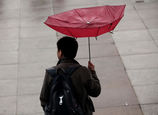

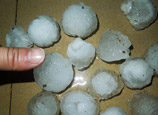
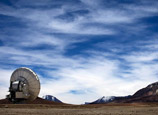


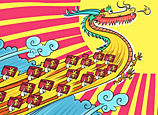
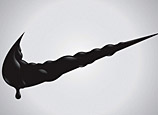








![]()
